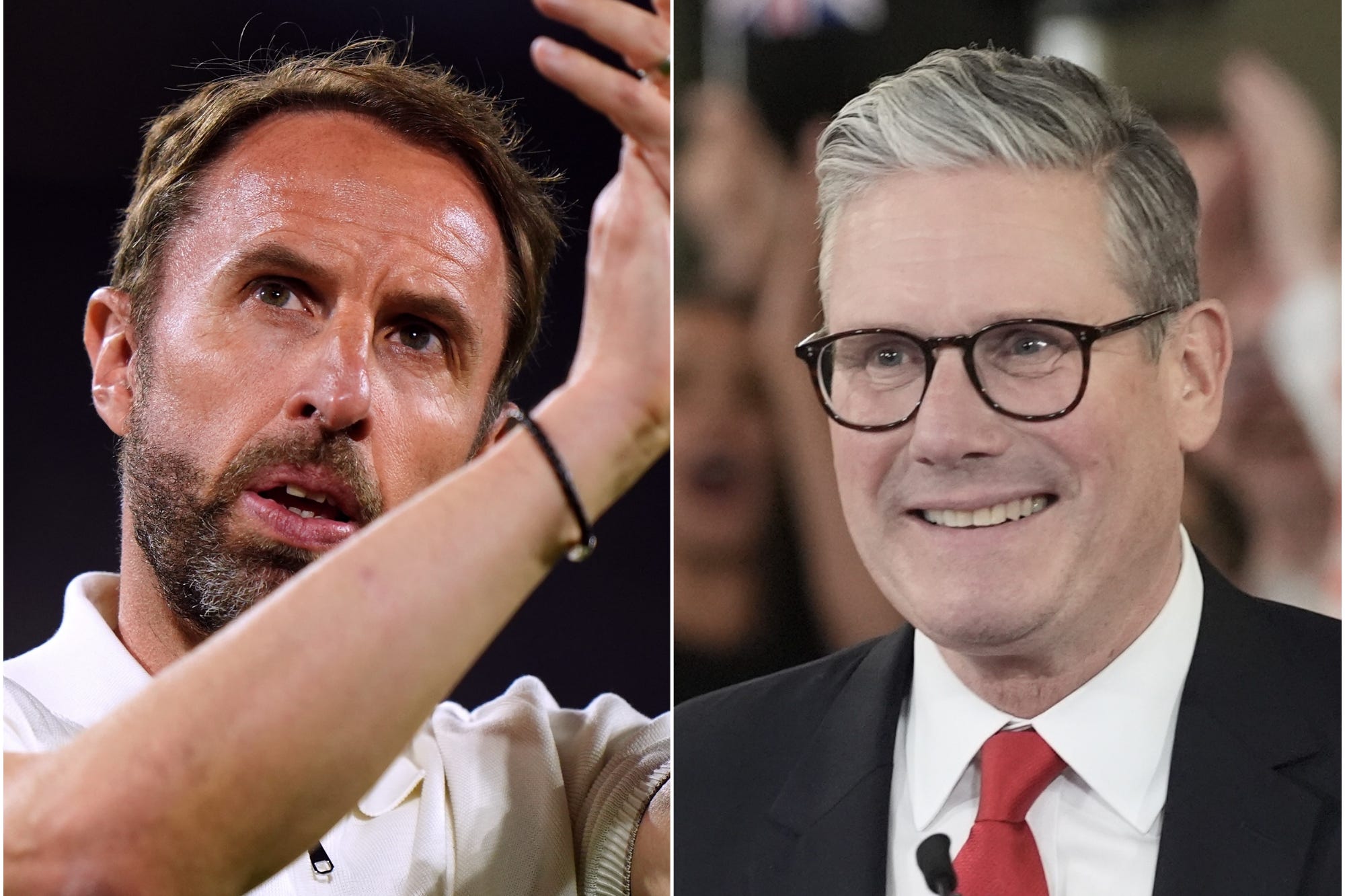Keir Starmer: England manager? There’s one crucial thing that unites the PM and Gareth Southgate
Both the England leader and the prime minister place a premium on respect, writes Andrew Grice. But is that enough to win us the Euros – or to fix the country?


Keir Starmer and Gareth Southgate have a lot in common. It’s not just that Starmer is an authentic football fan, unlike the many fake fan politicians with whom I have talked footie in my 40 years on the Westminster beat. Southgate is adept at the politics of being England manager – unlike many of his predecessors.
Both are unifying figures, as Southgate showed in the row about taking the knee, with his inspiring “Dear England” letter. Starmer is now trying to unite a country after the Conservatives practised the politics of division for 14 years and the country was polarised by Brexit.
The common bond between the two men is: respect. For Southgate, it’s not just the Respect campaign for "safer, healthier, more inclusive football for all" and respect for referees. The England manager respects his players, giving them credit when things go well on the pitch and taking personal responsibility when they go badly, as they did in those frustrating early games at the Euros. Whatever the result of the final, Southgate has again united the country behind the England team.
Respect was the theme that ran through Starmer’s first week as prime minister like the letters on a stick of rock. In his speech outside No 10, he promised his government would treat "every single person" with respect, whether or not they voted Labour. He showed respect to the devolved governments of Scotland, Northern Ireland and Wales on his whistle-stop tour. They had strained relations with the Tory government, but he won plaudits from the SNP and Sinn Fein for his constructive approach. Starmer won praise for showing respect for local leaders from the most senior elected Tory – Ben Houchen, mayor of Tees Valley.
Crucially, I’m told Starmer has transformed morale in the civil service, crushed by years of Tory attacks, by telling officials: “You have my confidence, support and, importantly, respect.” As well as being the right way to treat people, it’s a good investment. Blaming a Whitehall “blob” for their own failures was counterproductive for the Tories, and Labour ministers will succeed only if the government machine weighs in behind them.
Lisa Nandy, the culture secretary, said the mission of her department is to end “polarisation, division and isolation,” adding: “The era of culture wars is over.”
Starmer’s respect agenda is in stark contrast to his Tory predecessors. Boris Johnson showed contempt for the public by allowing Partygate to happen and lying about it. To her cost, Liz Truss failed to respect the Treasury, Office for Budget Responsibility and Bank of England, and Rishi Sunak, while gracious since his defeat, disrespected D-Day veterans. It’s an unusual turn for a party for which respect used to be a tablet of stone.
For Starmer, it’s personal. He has never forgotten how his father – did you know he was a toolmaker? – felt undervalued. His inner circle has been influenced by work on the respect agenda by University College London’s Policy Lab and More in Common, which works to build more inclusive societies. The key link is Alan Lockey, Starmer’s speechwriter.
Before the election, More in Common found that millions of Britons do not feel they get the respect they deserve. It said: “Britons think respect has become synonymous with having a degree and having wealth. They … think that lawyers, academics, doctors, CEOs get respect, while farmers, teachers, care workers, retail workers and factory workers don’t get the respect they deserve.”
What has been hailed Britain’s most working-class cabinet should be well-placed to value blue-collar workers and the forgotten heroes of the pandemic. Labour’s plans to extend workers’ rights can be seen as ensuring respect at work.
Respect might sound a woolly concept, but it matters. During the election, More in Common found that one of the biggest drivers for voters who had switched from the Tories to Labour since 2019 is a feeling that Starmer and Labour are more likely to “respect voters like them”.
It’s not just about politicians. As Starmer noted after the election was called, institutions’ disrespect for the public led to the Post Office and infected blood scandals. The lack of respect is “the canary in the mine of injustice”, he said.
I’m sure Southgate would make a good politician, though I suspect when he leaves the England job he will end up as Manchester United manager. Starmer probably thinks he would do a good job as manager of Arsenal or England, but should stick to his (rather busy) day job.
The PM has made a good start by showing respect. The tone and culture of a government matters; it’s vital today, when many voters feel alienated and ignored by politicians. Respecting voters will help reduce public cynicism about politics and rebuild trust. Respect might even be a way of binding together Labour’s diverse new coalition.
But it won’t be enough: the government will also need to show tangible improvements to public services and living standards. While respect comes free, that will cost money.





Join our commenting forum
Join thought-provoking conversations, follow other Independent readers and see their replies
Comments